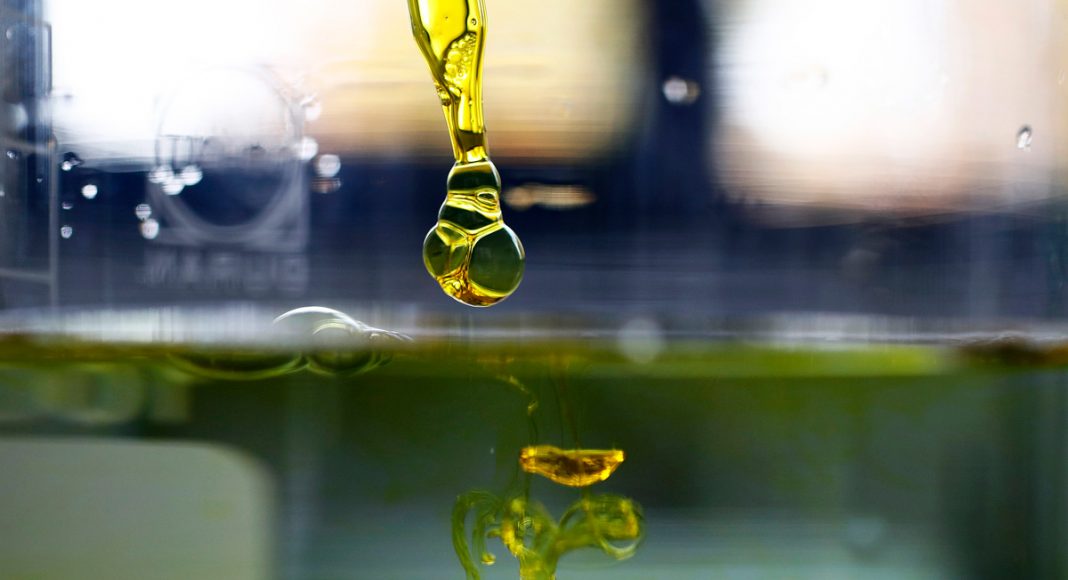Cannabidiol, or CBD, is a botanical compound extracted from cannabis and hemp that betters bodies but doesn’t mess with minds. Here are timeline highlights of CBD’s use, from the crampy queen of the Victorian age two centuries ago to epileptic children in the age of legalization today.
1800s
https://giphy.com/gifs/bones-booth-brennan-26gs6jWEXGu4pAYDK
CBD in cannabis relieves Queen Victoria’s menstrual cramps.
1940
CBD is isolated at the University of Illinois. Researchers called CBD “very toxic” and stated “it is not active in cannabis.” Researchers said CBD had no role in the human body and admitted they did not fully understand CBD.
1946
CBD and THC tested on lab animals. Researchers find that while THC induced trance-like effects in rabbits and mice,CBD appeared to produce no observable behavioral effects.
1964
CBD’s structure determined by Dr. Raphael Mechoulam, a chemist at Hebrew University of Jerusalem, opening research into CBD’s hundreds of medicinal benefits.
Late-1960’s
CBD and THC tested on lab primates by Dr. Mechoulam’s team. THC, not CBD, was deemed responsible for intoxicating effects.
1973
https://giphy.com/gifs/sudden-realization-5AKUXoS6qA8vu
-
Related Story: 8 Things Everyone Gets Wrong About Marijuana’s CBD
CBD, Brazilian scientists said, reduced or even prevented convulsions caused by epilepsy in animals. Research into CBD’s effects on humans was inconclusive.
1974
CBD, Brazilian scientists now said, functions as an anxiolytic,lessening epilepsy symptoms.
Mid-1970s
CBD demonstrated to reduce cancer patients’ nausea and vomiting caused by chemotherapy. CBD’s sedative effects also discovered. Other studies confirmed a phenomenon discovered in animals: CBD improves sleep in patients suffering from insomnia.
British Pharmacopoeia, a publication of quality standards for medicinal substances in the UK, released a licensed cannabis tincture containing CBD.
1980
CBD diminished convulsions suffered by children with epilepsy, according to results of double-blind trials conducted by Dr. Mechoulam and Brazilian researchers.
1982
CBD shown to have antipsychotic effects.
1995
https://giphy.com/gifs/jon-stewart-the-daily-show-11NGHc6dNM8Uy4
-
Related Story: Which Is More Effective For Marijuana Patients, THC Or CBD?
CBD first administered openly during a clinical test whose participants reported remarkable improvements.
Late 1990s
CBD found to be a powerful cellular antioxidant by researchers at the National Institutes of Mental Health. Other studies found CBD’s neuroprotective properties.
1998
CBD history made when the British government licensed GW Pharmaceuticals to grow cannabis and develop a precise and consistent extract for use in clinical trials. GW Pharmaceuticals co-founder, Geoffrey Guy, convinced the government that CBD-rich plants could produce cannabis-based medicine with little or no psychoactive effect.
1999
CBD medication Epidiolex by GW Pharmaceuticals begins trials.
2003
CBD is patented as a neuroprotectant by the United States government (U.S. Patent #6,630,507)
2006
CBD-rich cannabis strains emerge in California, led by dispensaries like Harborside in Oakland.
2008
CBD-rich Cannatonic seeds by renowned Resin Seeds debut at Spannabis.
2010
https://giphy.com/gifs/finally-atlast-itsover-J3hSvKHJC7d28
CBD’s largest nonprofit educational clearinghouse, Project CBD, launches, serving physicians, scientists, growers, cannabis-testing laboratories, patients and retailers.
2011
CBD, studies find, can be used to treat diseases like epilepsy, anxiety, cardiovascular diseases, schizophrenia and cancer.
2013
CBD captures the media spotlight when cable television network CNN reports the story of 6-year-old epilepsy patient Charlotte Figi, whose multiple daily seizures were treated with CBD.
2014
CBD is legalized for medicinal purposes by 11 states in which medicinal cannabis was not legal — Alabama, Florida, Iowa, Kentucky, Mississippi, Missouri, North Carolina, South Carolina, Tennessee, Utah, and Wisconsin.
2015
CBD-infused foods and treats for humans and pets emerge, from cannabis edibles-makers and other manufacturers, sold both in cannabis stores and some alternative retailers.
2016
CBD oils, tinctures and infused food and candies sold by retail giant Walmart.
2017
CBD oil sold by major retailer Target. CBD oil no longer sold by Target.
CBD, according to a statement by the U.S. Drug Enforcement Administration, “is being illegally produced and marketed in the United States in violation of two federal laws.”
2018
https://giphy.com/gifs/mtvawards-2018-mtv-movie-and-tv-awards-5z9K7xPIUV3O8pUYLq
CBD remains effectively outlawed after a federal appellate court in California rejected an industry challenge to a DEA rule in May.
CBD medication Epidiolex by GW Pharmaceuticals receives FDA approval on June 25 for sales and use starting in 90 days.
CBD products are approved for sale in Canada under Cannabis Act details released June 27.


